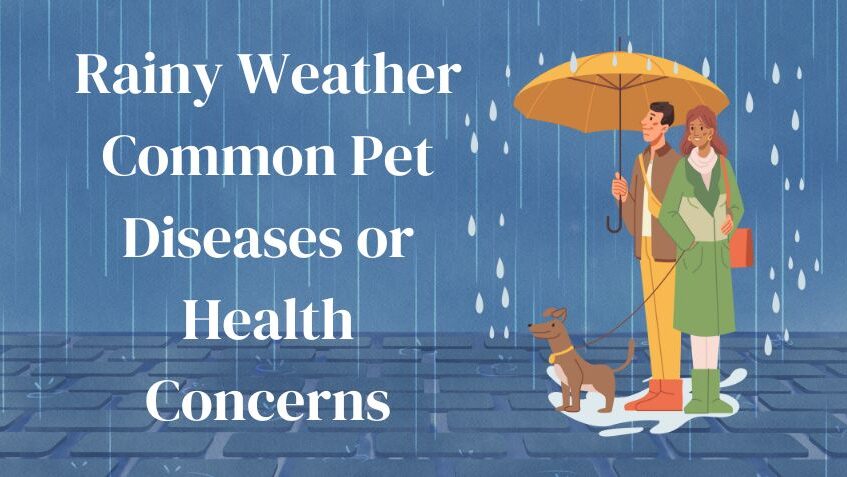Rainy Weather Common Pet Diseases or Health Concerns
Rainy days can create certain conditions that may affect pets’ health. Here are some common pet diseases or health concerns associated with rainy weather:
Respiratory Infections: Rainy days can bring dampness and mold growth, which may exacerbate respiratory issues in pets, particularly those with pre-existing conditions like asthma or bronchitis.
Kennel Cough: This highly contagious respiratory infection can be transmitted through the air or contact with contaminated surfaces, and it may spread more easily when pets are kept indoors due to rain.
Parasites: Rain and humidity can create an environment conducive to the proliferation of parasites like fleas, ticks, and mosquitoes. These parasites can transmit various diseases to pets, such as Lyme disease, heartworm, and West Nile virus.
Fungal Infections: Pets exposed to wet and muddy conditions may be at higher risk of developing fungal infections on their skin and paws, such as ringworm.
Paw Pad Problems: Prolonged exposure to wet surfaces can lead to softened paw pads and make them more susceptible to cuts, abrasions, and infections.
Gastrointestinal Upset: Rainwater can collect various contaminants, which pets might ingest while grooming or drinking from puddles. This may result in gastrointestinal issues or infections.
Hypothermia: Smaller or short-haired pets can be more susceptible to hypothermia on cold and rainy days, especially if they spend prolonged periods outside.
Behavioral Changes: Some pets may experience anxiety or stress due to the loud noises of thunderstorms and the changes in their daily routines caused by the rain.
Though there are many concerning events that can occur during rainy days, dogs still need their exercise—even in the face of stormy weather. Try to limit playtime to inside during inclement weather. When you must take your dog out, always monitor your pet closely to stop them from drinking out of puddles, eating plants, or finding toads to lick. Prevention is much more effective than dealing with rain-induced issues later.
Visit your veterinarian as early recognition, diagnosis, and treatment are essential.
You may also visit – https://www.facebook.com/angkopparasahayop





